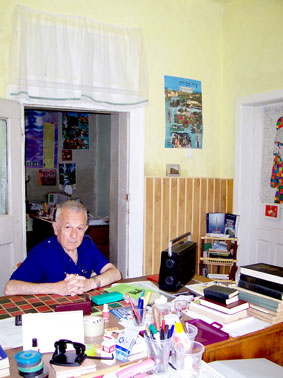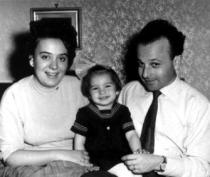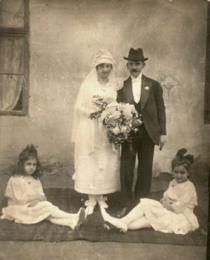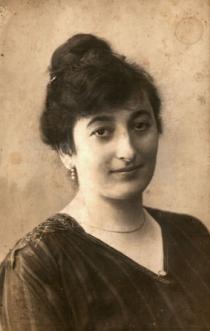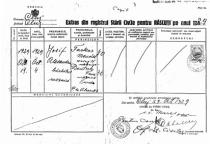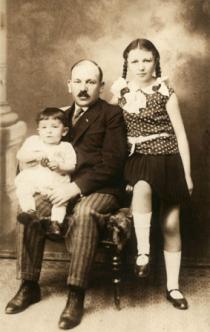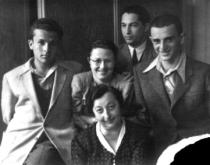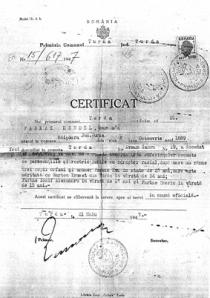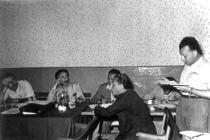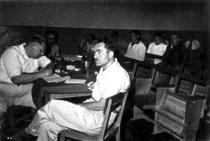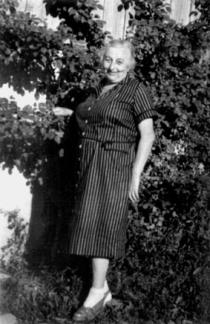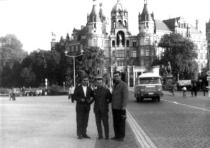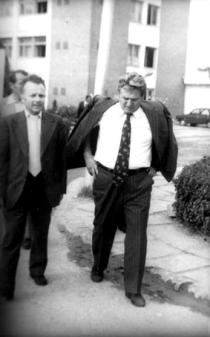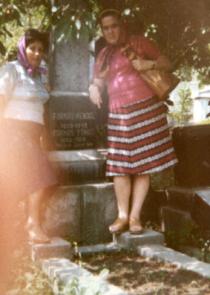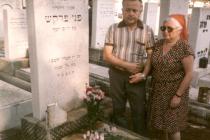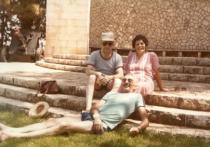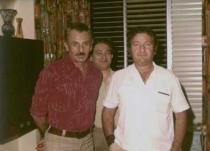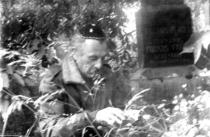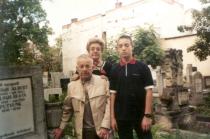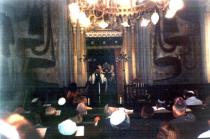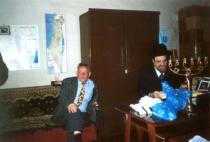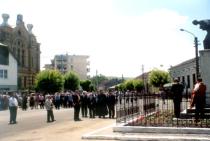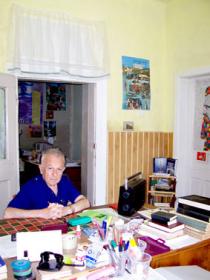This is me, Jozsef Farkas, in the office of the Jewish Community in Des, where I go on a daily basis since I was elected president of the community in March 1996.
I kept the Jewish religion even after my marriage. I didn't go every day to the synagogue, but I observed each holiday and attended the ceremonies, commemorations or any holiday: New Year's Day, Yom Kippur, Pesach, Shavuot, and I was present at the Yiskor services, every time. We didn't light candles for Sabbath. There's an interesting thing that I found out just now, when I grew old. The candles on Friday evening were lit by the women, not the men. And I was scared in Israel when the partner of my daughter didn't light the candle, but he showed his gratitude for the challah every Friday evening, and poured wine into a goblet, and said a prayer for that. After that everyone tasted the wine. In a word I'd like to say that only women light candles, and not the men. My mother lit candles. After she died, nobody lit candles in our house.
I always have my kippah with me. I think I bought it in Israel when I was there. When the men enter the synagogue, they have to wear a kippah on their head. The rabbis say you, the mortal, have to wear a kippah because you are not God's equal. There must be something separating a mortal from God. And the kippah covers the head, the skull, and prevents direct contact with God. The rabbis explain it so. And I believe this, I'm not skeptical about it.
The rabbi from Temesvar always used to come to Des for Chanukkah, and after he died, they sent a chazzan from Bucharest. On a scheduled day, we gather in the synagogue, in the small office. They light candles, one for each day of the holiday that has passed. Because we had to light candles for eight days, one on the first day, two on the second, three on the third and eight on the eighth. We celebrate the other holidays only in close companionship. We go to the lobby of the synagogue, not in the main room, and everyone prays as they can.
